
Netanya: The Jewel of Israel's Mediterranean Coast
Netanya, a vibrant city on Israel's Mediterranean coastline, offers visitors a perfect blend of natural beauty, cultural experiences, and modern amenities. Known for its expansive beaches, Netanya is a haven for sun-seekers and water sports enthusiasts. The city's 14 kilometers of golden sands are complemented by a string of beachfront promenades, lush gardens, and lively cafes, making it an ideal destination for relaxation and leisure. Beyond its stunning shores, Netanya boasts a rich history and diverse cultural scene. The city is home to several museums, including the Netanya Museum, which delves into the region's past, and the Well House, an old water well that tells the story of early settlers. Art lovers will appreciate the numerous galleries and public art installations scattered throughout the city. Nature enthusiasts will find plenty to explore in Netanya's parks and nature reserves. The Iris Reserve, famous for its rare and beautiful wildflowers, and the Udim Reserve, known for its scenic trails and wildlife, provide excellent opportunities for hiking and picnicking. For a taste of local life, visit the bustling Netanya Market, where you can sample fresh produce, spices, and traditional Israeli dishes. Netanya is also a gateway to exploring the wider region. Its central location makes it easy to take day trips to nearby attractions such as the ancient port city of Caesarea, the vibrant cultural hub of Tel Aviv, and the historical treasures of Jerusalem. Whether you're looking to unwind on the beach, delve into history, or experience local culture, Netanya offers something for every traveler.
Local tips in Netanya
- Visit the beach early in the morning to avoid crowds and enjoy a peaceful atmosphere.
- Try local delicacies at Netanya Market, especially on Tuesdays and Fridays when it's most lively.
- Take a walk along the Cliff Promenade at sunset for breathtaking views and photo opportunities.
- Rent a bike to explore the city's extensive network of cycling paths and green spaces.
- Check out the local events calendar; Netanya often hosts festivals, concerts, and cultural events.
- Use public transportation or taxis to visit nearby cities like Tel Aviv or Caesarea for day trips.
Neighbourhoods in Netanya
Netanya: The Jewel of Israel's Mediterranean Coast
Netanya, a vibrant city on Israel's Mediterranean coastline, offers visitors a perfect blend of natural beauty, cultural experiences, and modern amenities. Known for its expansive beaches, Netanya is a haven for sun-seekers and water sports enthusiasts. The city's 14 kilometers of golden sands are complemented by a string of beachfront promenades, lush gardens, and lively cafes, making it an ideal destination for relaxation and leisure. Beyond its stunning shores, Netanya boasts a rich history and diverse cultural scene. The city is home to several museums, including the Netanya Museum, which delves into the region's past, and the Well House, an old water well that tells the story of early settlers. Art lovers will appreciate the numerous galleries and public art installations scattered throughout the city. Nature enthusiasts will find plenty to explore in Netanya's parks and nature reserves. The Iris Reserve, famous for its rare and beautiful wildflowers, and the Udim Reserve, known for its scenic trails and wildlife, provide excellent opportunities for hiking and picnicking. For a taste of local life, visit the bustling Netanya Market, where you can sample fresh produce, spices, and traditional Israeli dishes. Netanya is also a gateway to exploring the wider region. Its central location makes it easy to take day trips to nearby attractions such as the ancient port city of Caesarea, the vibrant cultural hub of Tel Aviv, and the historical treasures of Jerusalem. Whether you're looking to unwind on the beach, delve into history, or experience local culture, Netanya offers something for every traveler.
When is the best time to go to Netanya?
Iconic landmarks you can’t miss
Independence Square
Discover the vibrant Independence Square in Netanya, a cultural hub with stunning views, lively events, and delicious local cuisine.
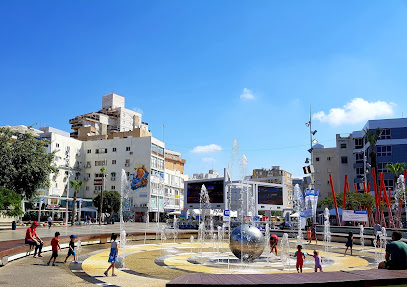
שלולית החורף נתניה
Discover the tranquility and beauty of Shlomi Park in Netanya, a perfect destination for relaxation, family fun, and nature exploration.
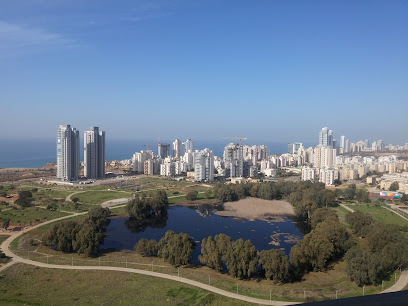
Netanya Beach Elevator
Discover the breathtaking views and beach access at Netanya Beach Elevator, a stunning observation deck along Israel's Mediterranean coast.
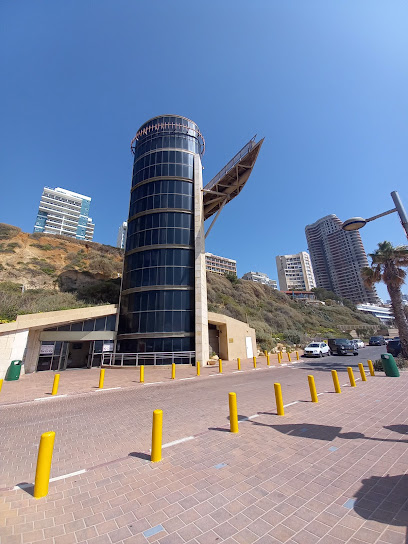
Netanya Stadium
Experience the thrill of sports and entertainment at Netanya Stadium, a premier venue in the heart of Israel’s vibrant coastal city.
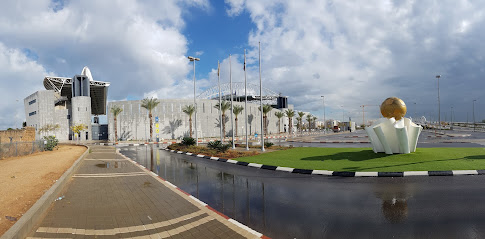
Iris Reserve
Explore the breathtaking Iris Reserve in Netanya, a nature lover's paradise filled with stunning landscapes and rich biodiversity, perfect for hiking and relaxation.
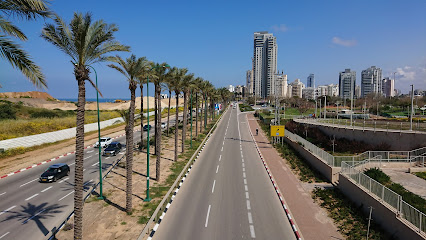
Park Einstein
Experience the serene beauty of Park Einstein in Netanya, a perfect escape for relaxation, picnics, and nature walks amidst stunning landscapes.
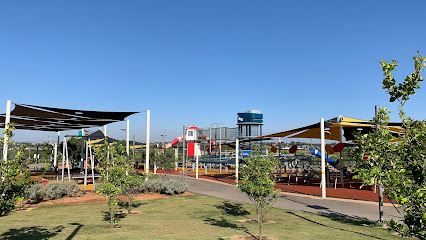
Victory Monument
Discover the poignant beauty of Victory Monument in Netanya, Israel - a war memorial that honors courage and offers a tranquil space for reflection.
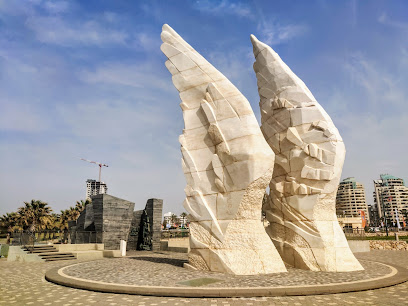
אתר ההנצחה לחללי חיל הטכנולוגיה והאחזקה
Explore the HaNatzach War Memorial in Netanya, a poignant tribute to valor and sacrifice surrounded by serene gardens and rich history.
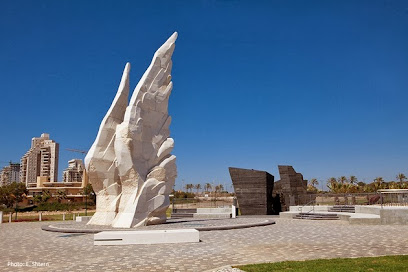
Netanya City Museum
Explore the rich history and culture of Netanya at the City Museum, where every exhibit tells a story of the city's vibrant past.
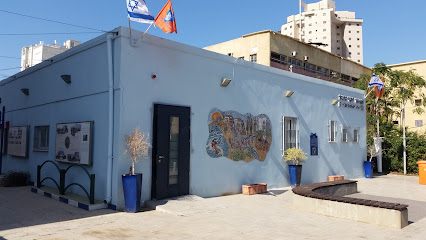
Irus Argaman Reserve
Explore the breathtaking Irus Argaman Reserve in Netanya, a national park rich in biodiversity and perfect for outdoor adventures and relaxation.
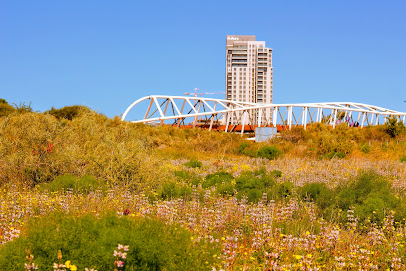
Beit Yad Labanim
Explore Beit Yad Labanim, a cultural center in Netanya that honors Israel's fallen soldiers and enriches your understanding of the nation's history.
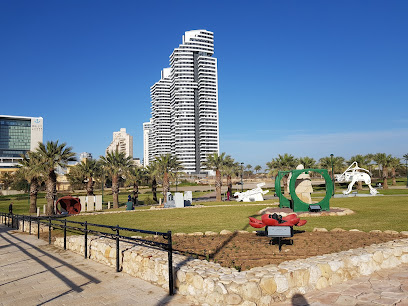
Netanya Shikun Vatikim Cemetery
Explore the tranquil beauty of Netanya Shikun Vatikim Cemetery, a peaceful haven reflecting the city's rich history and cultural heritage.
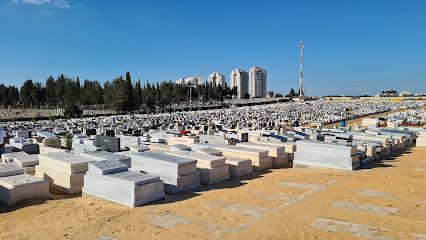
Young Israel of North Netanya
Experience the warmth of community and deep-rooted traditions at Young Israel of North Netanya, a spiritual haven in the heart of Israel.
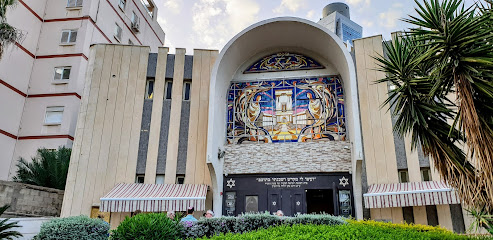
GoNetanya
Explore Netanya like a local with GoNetanya, your essential tourist information center for beach adventures and cultural experiences.
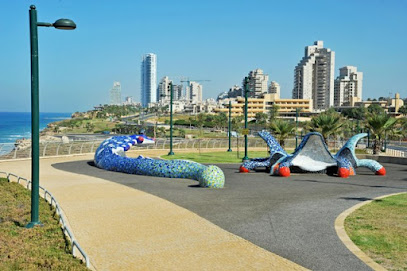
Netanya Israel
Discover the allure of Netanya, Israel, where stunning beaches meet rich culture and vibrant local life, creating an unforgettable coastal getaway.
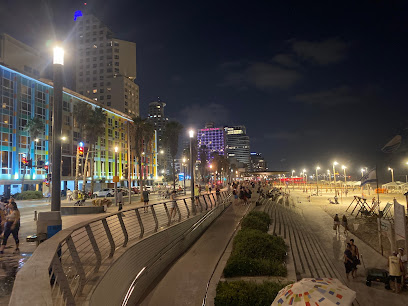
Unmissable attractions to see
Caesarea National Park
Explore the ancient wonders and natural beauty of Caesarea National Park, a captivating historical site along the Mediterranean coast.
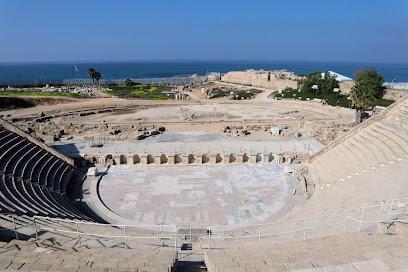
Yarkon Park
Experience the natural beauty and vibrant recreational opportunities of Yarkon Park, an urban oasis in the heart of Tel Aviv, perfect for relaxation and adventure.
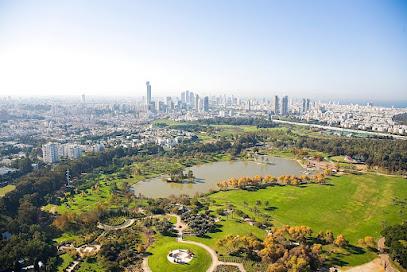
Tel Aviv Museum of Art
Explore the rich artistic heritage and stunning collections at the Tel Aviv Museum of Art, a cultural gem in Israel's vibrant cityscape.
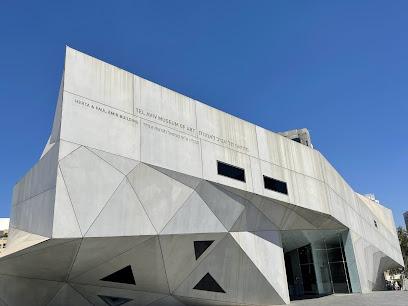
Ramat Hanadiv
Discover Ramat Hanadiv, a beautiful memorial park in Zikhron Ya'akov, blending nature and history for an unforgettable outdoor experience.
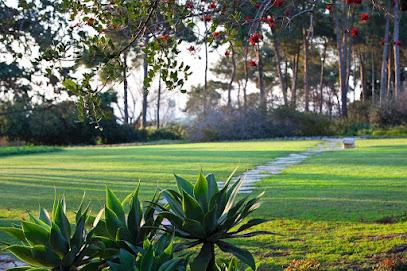
HaBima Square
Experience the tranquility and cultural vibrancy of HaBima Square, the heart of Tel Aviv, where nature meets urban life.
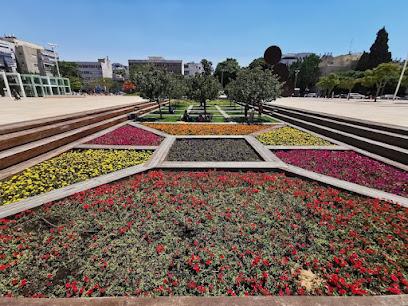
Independence Square
Explore Independence Square, a vibrant cultural hub in Netanya, where stunning sea views meet local dining and lively events.
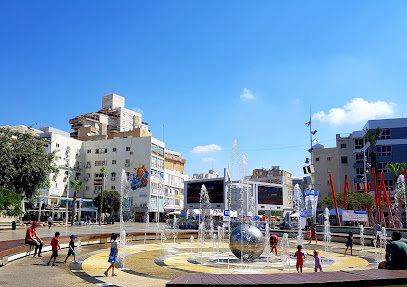
ANU Museum of the Jewish People
Explore the ANU Museum of the Jewish People in Tel Aviv-Yafo, where history, culture, and art converge to tell the Jewish story.
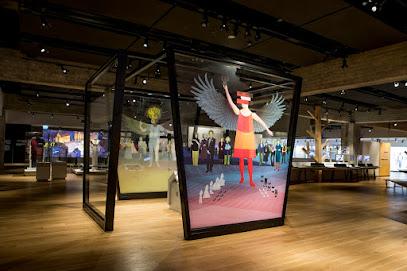
Apollonia National Park
Explore the ancient ruins and breathtaking coastal views at Apollonia National Park in Herzliya, a perfect blend of history and nature.
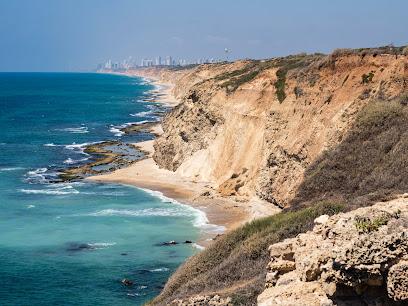
Eretz Israel Museum
Discover Israel's rich heritage at the Eretz Israel Museum in Tel Aviv, where archaeology, ethnography, and history come alive in a captivating setting.
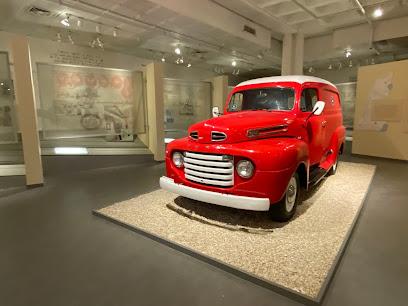
שלולית החורף נתניה
Explore the beauty of Shlomo Shlomo Park in Netanya, where nature meets recreation along the stunning Mediterranean coast.
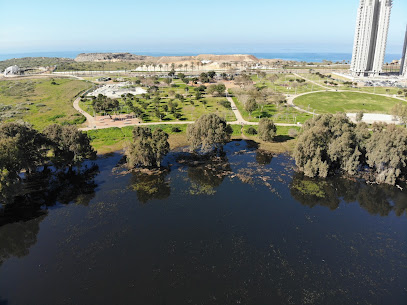
Bezalel Market
Experience the flavors and creativity of Tel Aviv at Bezalel Market, a vibrant hub for food, crafts, and local culture.
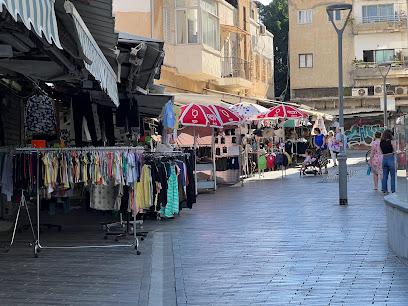
Kikar Dizengoff
Discover the vibrant ambiance of Kikar Dizengoff, a cultural hotspot in Tel Aviv filled with art, shopping, and culinary delights.
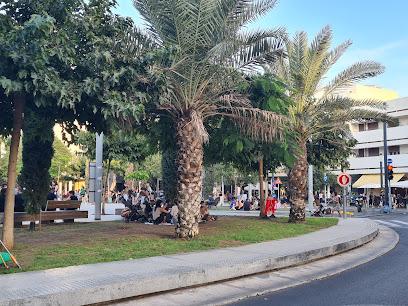
Tel Baruch Beach
Discover the beauty of Tel Baruch Beach, a stunning destination on Israel's Mediterranean coast, perfect for relaxation and adventure.
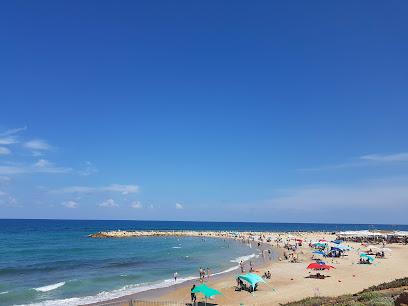
Independence Park
Discover the serene beauty of Independence Park in Tel Aviv, a lush green oasis perfect for relaxation, recreation, and cultural exploration.
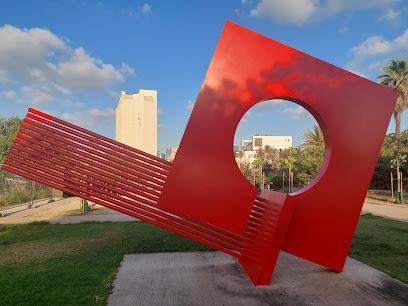
Megiddo National Park
Discover the ancient wonders and stunning landscapes of Megiddo National Park, a UNESCO World Heritage site in Israel.
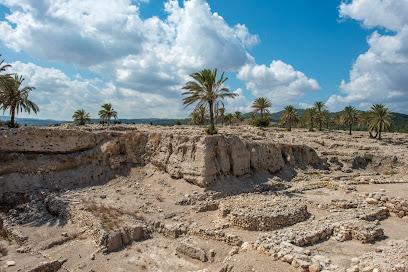
Essential places to dine
HaYekev
Discover HaYekev in Netanya - A Kosher Culinary Gem Offering Mediterranean & Italian Delights in a Warm Atmosphere.
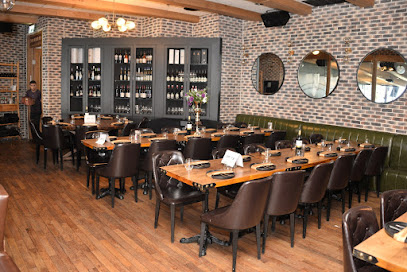
Nishi
Discover Nishi in Netanya - where traditional Asian flavors meet modern culinary artistry for an unforgettable dining experience.
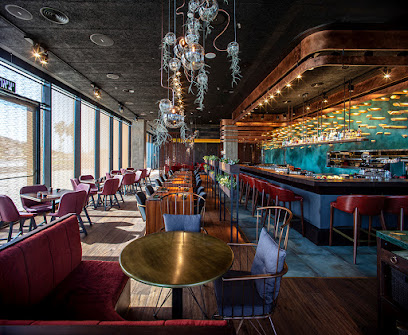
Mojo Asian Foodbar
Savor the best of Asian fusion cuisine and innovative cocktails at Mojo Asian Foodbar in Netanya.
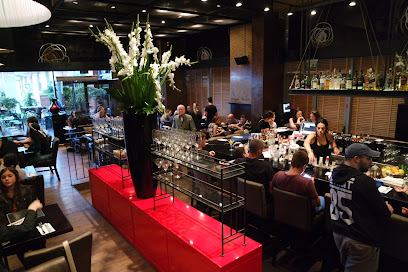
Alabama
Experience the best of chophouse dining at Alabama in Netanya – where flavor meets excellence in every bite.
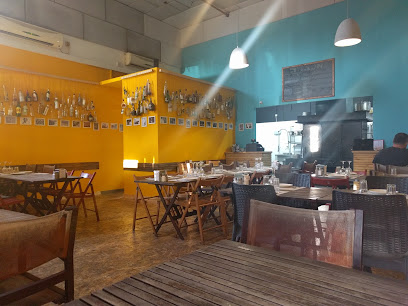
Max Brenner | שוקולד בר, קינוחים, קפה וחנות מתנות
Discover Max Brenner in Netanya: A Chocolate Haven for Dessert Lovers Offering Decadent Treats and Cozy Ambiance.
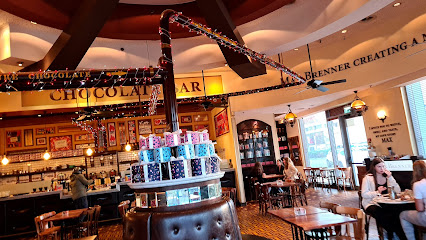
Fratelli
Experience authentic Italian cuisine at Fratelli in Netanya - where every meal is a celebration of flavors and hospitality.
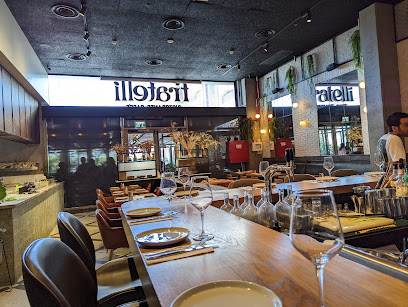
Bamboo Village
Discover culinary delights at Bamboo Village in Netanya – where vibrant flavors meet a welcoming atmosphere for an unforgettable dining experience.
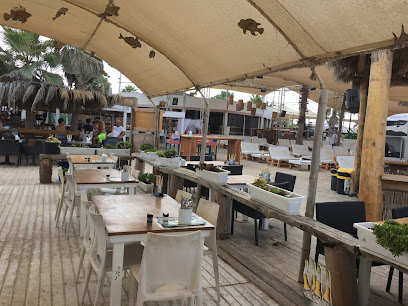
Bar Italia
Experience authentic Italian cuisine at Bar Italia in Netanya – where tradition meets taste in an elegant setting.
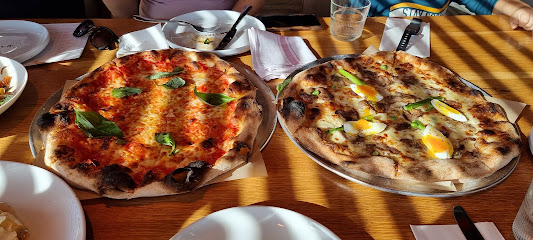
Piano Piano
Discover authentic Italian cuisine at Piano Piano in Netanya – where tradition meets modern dining in a cozy atmosphere.
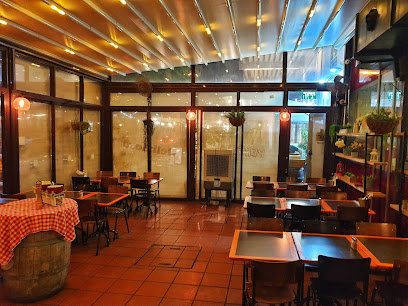
Beerloga
Discover Beerloga in Netanya: A culinary gem blending local flavors with international cuisine in a lively bar setting.
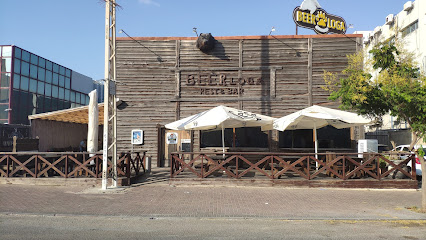
Batumi
Experience the best of Georgian cuisine in Batumi – where flavor meets culture along the stunning Black Sea coast.
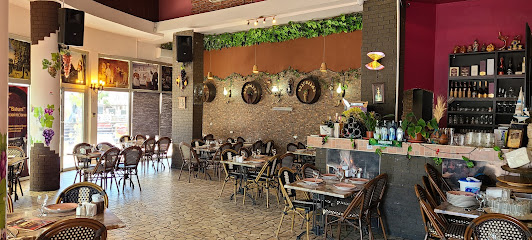
Falafel Netanya
Experience the authentic flavors of Israel at Falafel Netanya—where delicious falafel meets welcoming atmosphere.
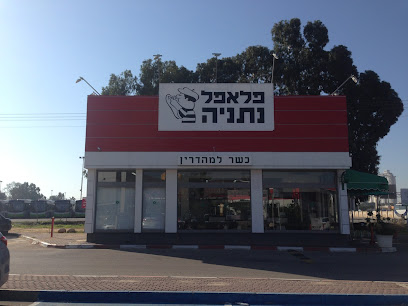
El Gaucho
Experience authentic South American cuisine at El Gaucho in Netanya – where every meal is a celebration of flavor.
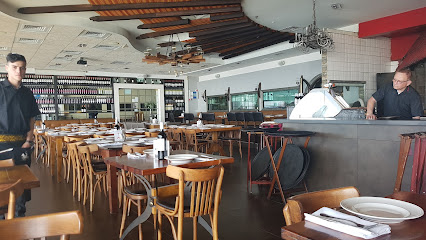
Red Burger Bar
Experience gourmet burgers like never before at Red Burger Bar in Netanya - where flavor meets casual dining.
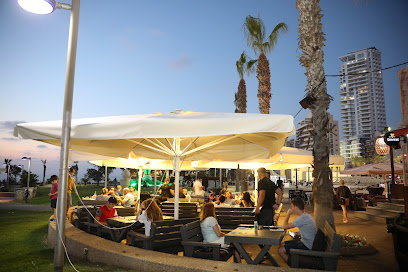
Beef Bar
Discover culinary excellence at Beef Bar in Netanya - where premium steaks meet elegant dining.
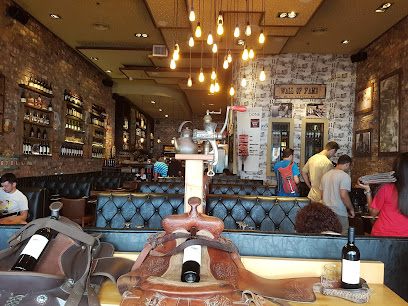
Markets, malls and hidden boutiques
Nitsba Center Poleg
Discover Nitsba Center Poleg, Netanya's premier shopping mall, featuring diverse shops, dining, and entertainment for an unforgettable experience.
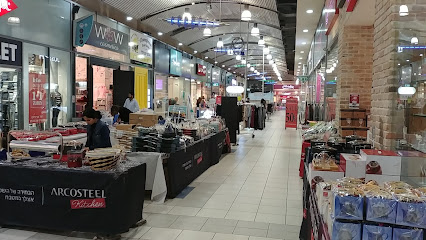
רוגובין פדרמן הסינמה סיטי
Discover the vibrant Rogovin Federman Cinema City in Netanya, where shopping, dining, and entertainment create an unforgettable experience.
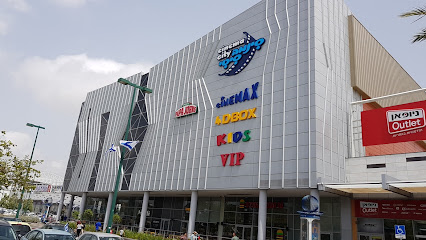
Naimi Mall
Discover the vibrant shopping scene at Naimi Mall, Netanya's go-to destination for fashion, dining, and entertainment.
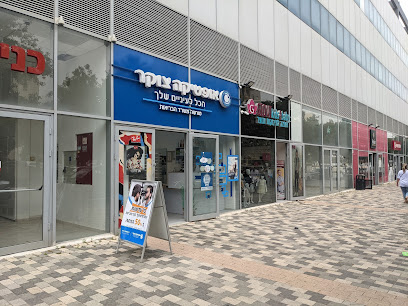
Poleg Mall Ltd.
Explore the vibrant shopping experience at Poleg Mall in Netanya, offering diverse shops, delicious dining, and local culture.
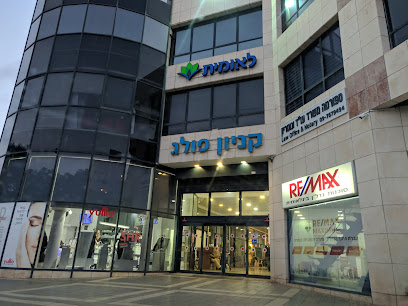
The North Face Outlet
Discover quality outdoor gear at The North Face Outlet in Netanya, perfect for hiking, skiing, and exploring the great outdoors.
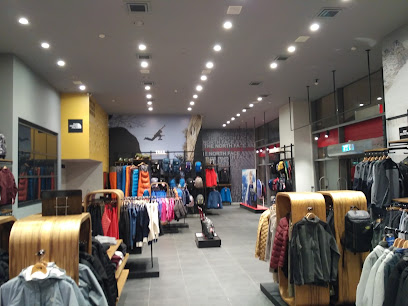
Trio
Discover Trio in Netanya - your go-to grocery store for local and international delights, offering a variety of fresh produce and unique Israeli products.
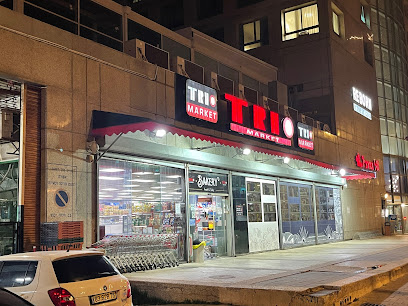
מנילה שופ
Experience the vibrant culinary culture of Asia at מנילה שופ, your go-to Asian grocery store in Netanya, filled with authentic ingredients and flavors.
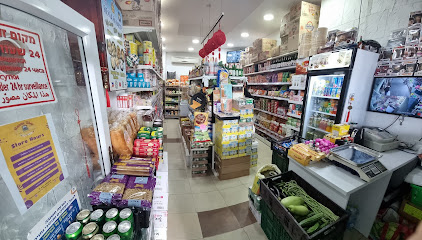
Poleg Center
Explore the dynamic shopping and dining experience at Poleg Center in Netanya, where local culture meets modern retail.
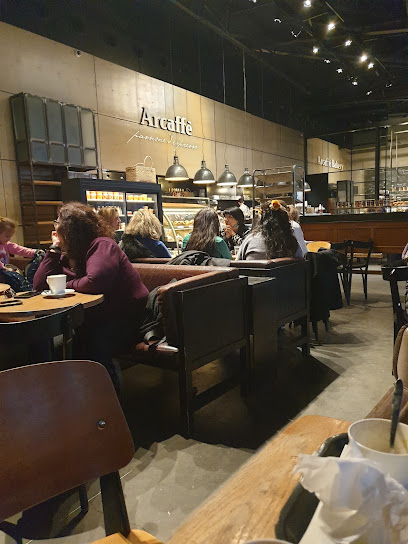
Story Outlet סטורי
Discover the trendiest styles at Story Outlet in Netanya, where fashion meets affordability in a vibrant shopping experience.
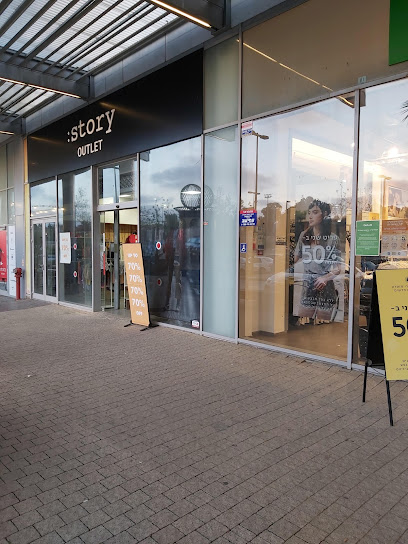
URBAN | אורבן - סניף נתניה
Explore URBAN | אורבן in Netanya for a unique blend of rustic and modern furniture, perfect for elevating your home decor.
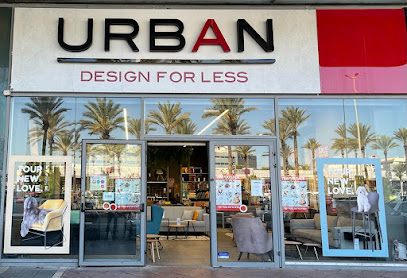
Сувениры со Святой земли
Explore Сувениры со Святой земли: Your destination for authentic gifts and souvenirs from the Holy Land in the heart of Netanya.
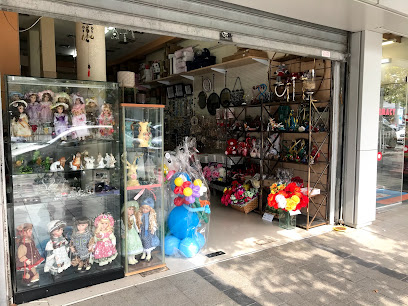
Deborah's Boutique
Explore Deborah's Boutique in Netanya for exclusive fashion finds and a personal shopping experience that reflects your unique style.
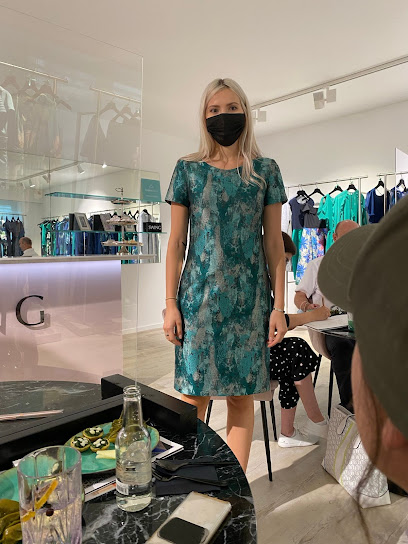
Boutique Antique Vivat
Explore the rich history and unique treasures at Boutique Antique Vivat, Netanya’s premier antique store, perfect for collectors and history lovers.
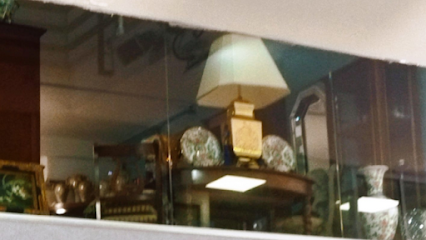
עיצוב הבית יוניק
Explore the finest selection of unique furniture and home decor at Unik Center in Netanya, where style meets functionality.
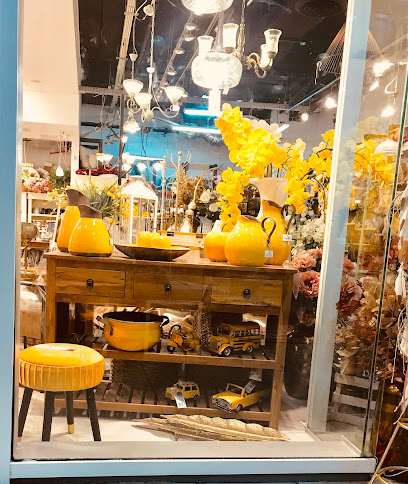
Story סטורי
Explore the latest fashion trends at Story Clothing Store in Netanya, where style meets affordability in a vibrant shopping atmosphere.
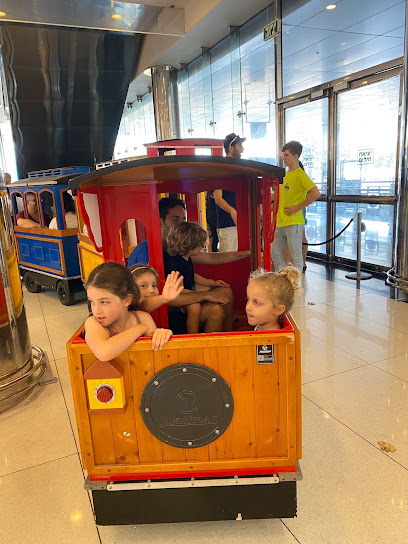
Essential bars & hidden hideouts
Beerloga
Experience the vibrant atmosphere and diverse beer selection at Beerloga, Netanya's premier bar and restaurant for tourists and locals alike.
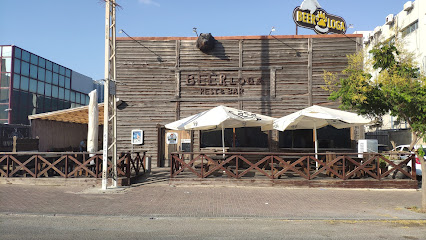
Red Burger Bar
Explore the vibrant flavors of Red Burger Bar in Netanya, where gourmet burgers meet a lively bar atmosphere for an unforgettable dining experience.
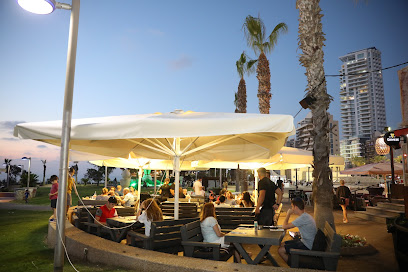
Beer Shop
Experience the lively vibe of Beer Shop, a premier beer garden and pub in Netanya, offering a diverse selection of brews and delicious bites.
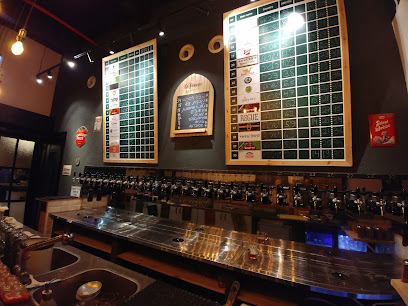
Murphy's
Discover Murphy's Irish Pub in Netanya for an unforgettable blend of live music, delicious kosher meals, and a vibrant atmosphere perfect for travelers.
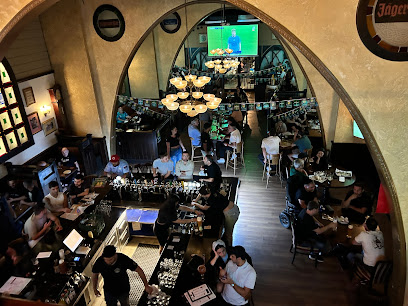
ג'מס קרית השרון החדש
Discover the lively charm of ג'מס קרית השרון החדש in Netanya, where delicious food and vibrant nightlife create unforgettable experiences.
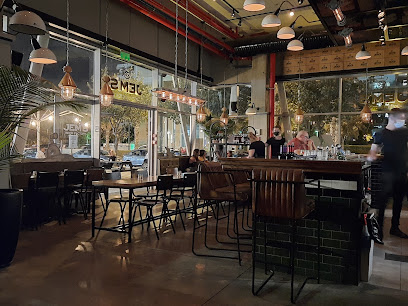
Uranus
Explore the lively Uranus Pub in Netanya for a memorable nightlife experience filled with great drinks and vibrant entertainment.
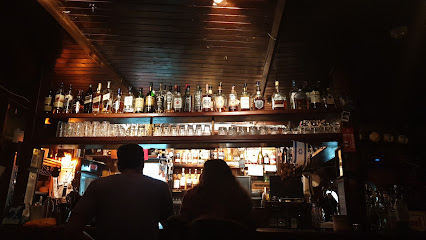
Rhythm Social
Discover Rhythm Social in Netanya – a trendy cocktail bar offering crafted drinks and vibrant nightlife for a memorable evening.
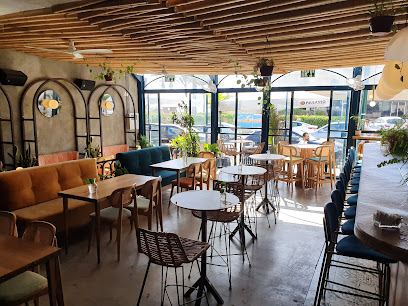
Lagansky
Discover the vibrant nightlife of Lagansky, a premier live music and comedy venue in Netanya, where entertainment meets local culture.
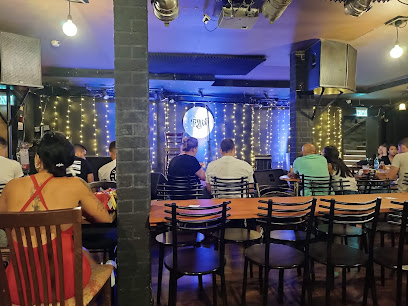
Hansel and Gretel
Discover the enchanting ambiance of Hansel and Gretel, a cozy bar in Netanya offering signature cocktails and a vibrant nightlife experience.
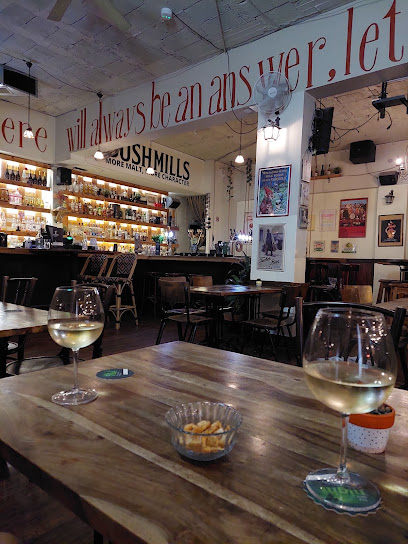
ארט סטריט
Discover the artistic charm of Art Street, a vibrant bar in Netanya offering eclectic decor, craft cocktails, and a lively atmosphere for locals and tourists alike.
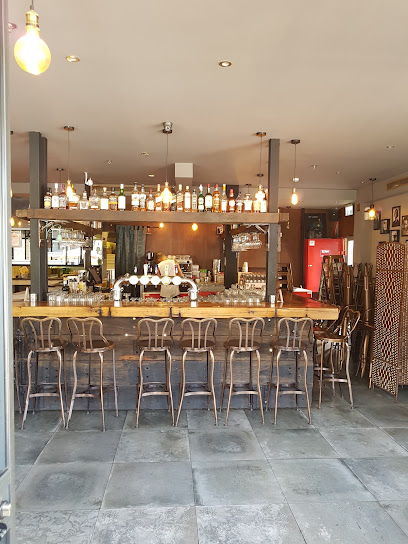
Tommy Gun
Discover Tommy Gun, a premier cocktail bar and restaurant in Netanya, where vibrant ambiance meets exquisite drinks and delightful cuisine.
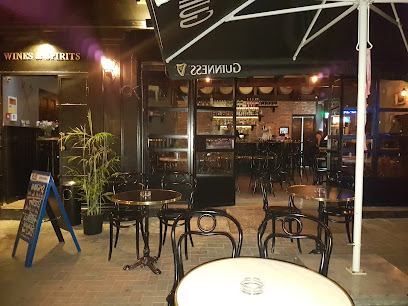
Jem's beer factory
Experience artisanal brewing at Jem's Beer Factory in Netanya, where craft beers and a vibrant atmosphere await every visitor.
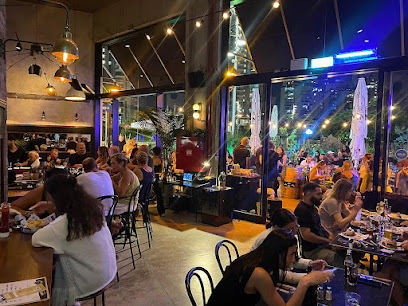
גרייס בר נתניה - Grace bar & Lounge
Experience the vibrant nightlife at Grace Bar & Lounge in Netanya, where crafted cocktails and live music create unforgettable nights.
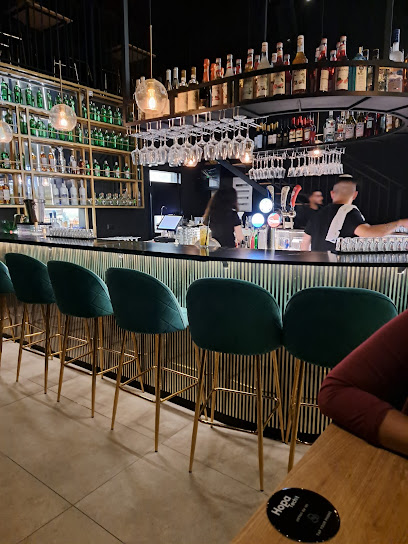
Front by Rhythm
Discover the lively atmosphere and diverse drink offerings at Front by Rhythm, a top bar in Netanya, perfect for an unforgettable night out.
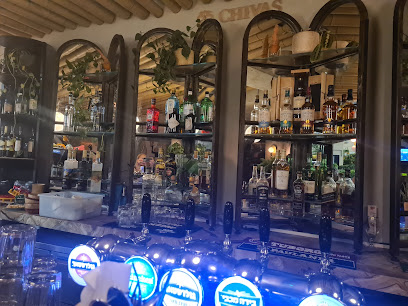
Local Phrases
-
- Helloשָׁלוֹם
[Shalom] - Goodbyeלְהֵיתֵר
[Lehitraot] - Yesכֵּן
[Ken] - Noלא
[Lo] - Please/You're welcomeבבקשה
[Bevakasha] - Thank youתודה
[Toda] - Excuse me/Sorryסליחה
[Slicha] - How are you?איך אתה?
[Eich Ata?] - Fine. And you?טוב. ואתה?
[Tov. Ve'ata?] - Do you speak English?אתה מדבר אנגלית?
[Ata medaber Anglit?] - I don't understandאני לא מבין
[Ani lo mevin]
- Helloשָׁלוֹם
-
- I'd like to see the menu, pleaseאשמח לראות את התפריט, בבקשה
[Eshmach lir'ot et hataprit, bevakasha] - I don't eat meatאני לא אוכל בשר
[Ani lo ochel basar] - Cheers!לחיים!
[Lechayim!] - I would like to pay, pleaseאשמח לשלם, בבקשה
[Eshmach leshalem, bevakasha]
- I'd like to see the menu, pleaseאשמח לראות את התפריט, בבקשה
-
- Help!עזרה!
[Ezra!] - Go away!לך הלאה!
[Lech hala'a!] - Call the Police!קרא למשטרה!
[Kra la'mishtara!] - Call a doctor!קרא לרופא!
[Kra la'rofe!] - I'm lostאני אבוד
[Ani avud] - I'm illאני חולה
[Ani holeh]
- Help!עזרה!
-
- I'd like to buy...אשמח לקנות...
[Eshmach liknot...] - I'm just lookingרק רואה
[Rak roeh] - How much is it?כמה עולה זה?
[Kama oleh ze?] - That's too expensiveזה יקר מדי
[Ze yakar me'od] - Can you lower the price?אפשר להוריד את המחיר?
[Efshar lehorid et hamachir?]
- I'd like to buy...אשמח לקנות...
-
- What time is it?מה השעה?
[Ma hasha'a?] - It's one o'clockהשעה היא אחת
[Hasha'a hi achat] - Half past (10)חצי (עשר)
[Chatzi (eser)] - Morningבוקר
[Boker] - Afternoonצהריים
[Tzohorayim] - Eveningערב
[Erev] - Yesterdayאתמול
[Etmol] - Todayהיום
[Hayom] - Tomorrowמחר
[Mahar] - 1אחד
[Echad] - 2שניים
[Shnayim] - 3שלושה
[Shlosha] - 4ארבעה
[Arba'a] - 5חמישה
[Chamisha] - 6שישה
[Shisha] - 7שבעה
[Shiv'a] - 8שמונה
[Shmoneh] - 9תשעה
[Tish'a] - 10עשרה
[Eser]
- What time is it?מה השעה?
-
- Where's a/the...?איפה נמצא...
[Eifo nimtza...] - What's the address?מה הכתובת?
[Ma hakatovet?] - Can you show me (on the map)?אתה יכול להראות לי (על המפה)?
[Ata yachol leharot li (al hamapa)?] - When's the next (bus)?מתי האוטובוס הבא?
[Matai ha'otobus haba?] - A ticket (to ....)כרטיס (ל...)
[Kartis (le...)]
- Where's a/the...?איפה נמצא...
History of Netanya
-
Netanya was founded in 1929 by a group of Jewish settlers who named the city in honor of Nathan Straus, a prominent American Jewish philanthropist. The city was initially established as an agricultural settlement, focusing on citrus farming, which played a significant role in its early economy.
-
During the British Mandate period, Netanya began to grow rapidly. The construction of the Tel Aviv-Haifa railway in the 1930s significantly boosted the city's development, making it more accessible and promoting trade. The city also became a center for the Irgun, a Jewish paramilitary organization, during the struggle for Israeli independence.
-
Following the establishment of the State of Israel in 1948, Netanya experienced a surge in population. Waves of Jewish immigrants from Europe and the Middle East settled in the city, contributing to its rapid expansion. The city evolved from a small settlement into a bustling urban center, with the construction of new neighborhoods and infrastructure.
-
In the 1950s and 1960s, Netanya's economy diversified beyond agriculture. The establishment of diamond polishing factories turned the city into a major hub for the diamond industry. This period also saw the growth of tourism, with Netanya's beautiful Mediterranean beaches attracting visitors from around the world.
-
Netanya is known for its vibrant cultural scene. The city hosts numerous cultural festivals, art exhibitions, and music events. The establishment of cultural institutions like the Netanya Academic College and the Netanya Amphitheater has further enriched the city's cultural landscape. Additionally, Netanya is home to a diverse population, including large communities of French and Russian immigrants, which has greatly influenced its social fabric.
-
Today, Netanya is a thriving city known for its high quality of life. It boasts a mix of residential, commercial, and recreational areas. The city has continued to develop its infrastructure, including the construction of new parks, shopping centers, and residential complexes. Netanya's beaches remain a major attraction, drawing both locals and tourists to its shores.
Netanya Essentials
-
Netanya is located along the Mediterranean coastline, approximately 30 kilometers north of Tel Aviv. The nearest international airport is Ben Gurion Airport (TLV), which is about a 45-minute drive from Netanya. From the airport, you can take a taxi, a private shuttle, or a train to Netanya. The train is a convenient and economical option; it runs regularly and takes about 40 minutes from Ben Gurion Airport to Netanya's main train station.
-
Netanya offers a variety of transportation options. The city has an efficient public bus system that connects different neighborhoods and nearby cities. Taxis are readily available and can be hailed on the street or booked through mobile apps. For more flexibility, consider renting a car, which allows you to explore Netanya and its surroundings at your own pace. Bicycles and electric scooters are also popular for short distances and can be rented at various spots around the city.
-
The official currency in Israel is the New Israeli Shekel (NIS). Credit cards are widely accepted in most hotels, restaurants, and shops. ATMs are plentiful, and you can withdraw Shekels using international debit or credit cards. It's advisable to carry some cash, especially for small purchases or in markets. Currency exchange services are available at the airport, banks, and authorized exchange bureaus.
-
Netanya is generally a safe city for tourists, but it's always wise to take standard precautions. The city center and beach areas are well-patrolled and popular with tourists. However, be cautious in less crowded areas, especially at night. Avoid displaying valuables openly and be aware of your surroundings. Petty theft, such as pickpocketing, can occur in crowded places. High-crime areas targeting tourists are rare, but remaining vigilant is always a good practice.
-
In case of an emergency, dial 100 for police assistance, 101 for medical emergencies, and 102 for fire services. The Laniado Hospital in Netanya provides comprehensive medical services. Pharmacies, many of which operate 24/7, are available for minor health issues. It is advisable to have travel insurance that covers medical emergencies. For non-urgent issues, there are numerous clinics and medical centers in the city.
-
Fashion: Do wear comfortable and casual clothing, but dress modestly when visiting religious sites. Avoid overly revealing attire. Religion: Do respect the local customs and traditions. Refrain from taking photographs during religious ceremonies or in places of worship without permission. Public Transport: Do be courteous and offer seats to elderly or pregnant passengers. Avoid eating or drinking on public transport. Greetings: Do greet people with a handshake. In more religious areas, a slight nod or bow might be more appropriate. Eating & Drinking: Do try local Israeli cuisine and accept hospitality graciously. Don’t refuse food or drink offered by your hosts, as it can be considered impolite.
-
To experience Netanya like a local, visit the local markets such as the Netanya Market (Shuk Netanya) to buy fresh produce, spices, and traditional Israeli goods. Take a stroll along the Netanya Promenade for stunning views of the Mediterranean Sea. Engage with locals; they are often friendly and eager to share tips about the best places to eat and visit. Don’t miss the seasonal events and festivals that showcase local culture and traditions. For a unique experience, visit the Iris Reserve in spring to see the beautiful blooming irises.
Trending Landmark in Netanya
-
Independence Square
-
שלולית החורף נתניה
-
Netanya Beach Elevator
-
Netanya Stadium
-
Iris Reserve
-
Park Einstein
-
Victory Monument
-
אתר ההנצחה לחללי חיל הטכנולוגיה והאחזקה
-
Netanya City Museum
-
Irus Argaman Reserve
-
Beit Yad Labanim
-
Netanya Shikun Vatikim Cemetery
-
Young Israel of North Netanya
-
GoNetanya
-
Netanya Israel
Nearby Cities to Netanya
-
Things To Do in Hadera
-
Things To Do in Ra'anana
-
Things To Do in Raanana
-
Things To Do in Kfar Saba
-
Things To Do in Herzliya
-
Things To Do in Hod Hasharon
-
Things To Do in Caesarea
-
Things To Do in Tel Aviv
-
Things To Do in Ramat Gan
-
Things To Do in Zikhron Ya'akov
-
Things To Do in Jaffa
-
Things To Do in Holon
-
Things To Do in Modi'in
-
Things To Do in Haifa
-
Things To Do in Nazareth














